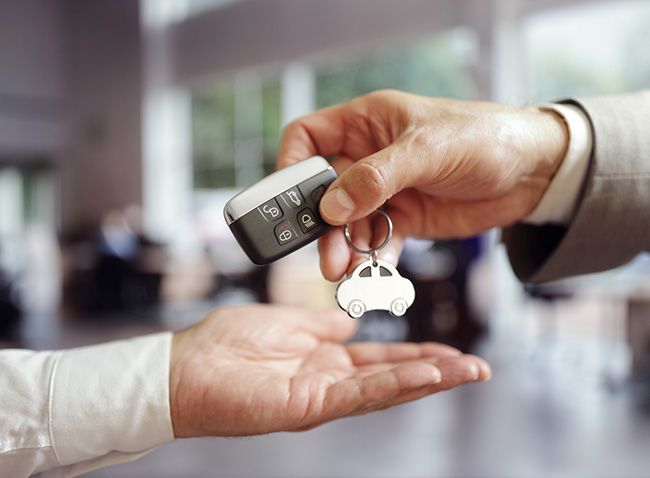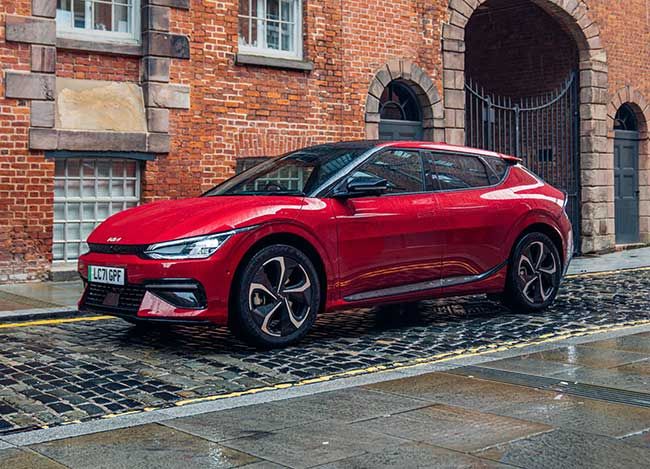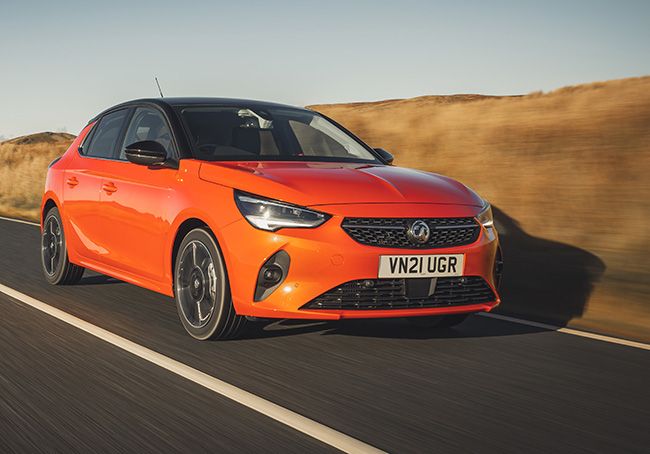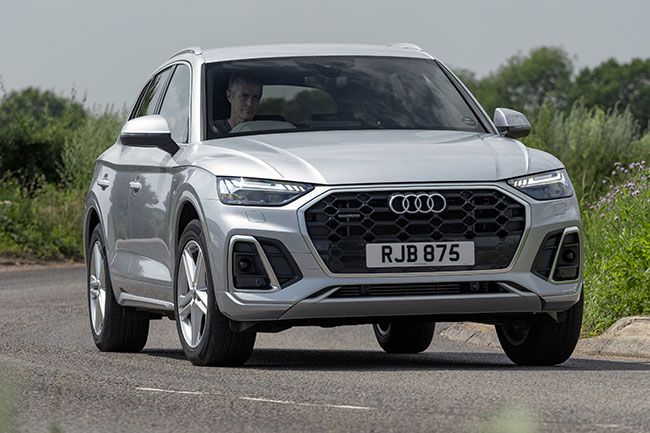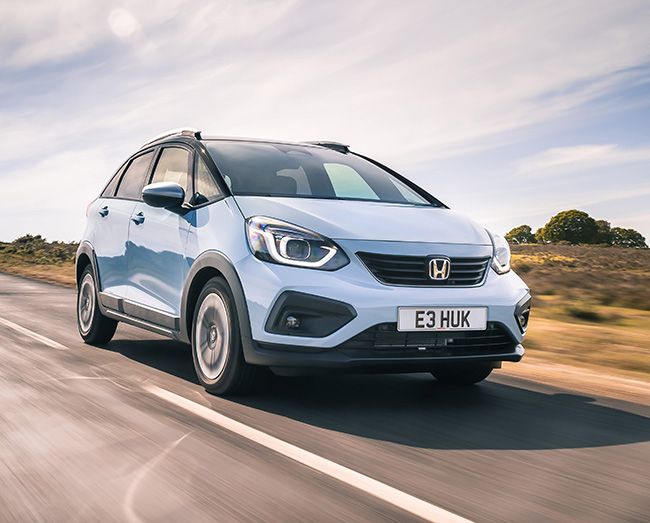If you’re shopping for a new car in 2022, you’ll be faced with whether to go electric, petrol or hybrid – and it can be confusing, with pros and cons for each type of vehicle from the cost to environmental issues to what you’re used to! We can’t make the decision for you, but we can help you by weighing up the advantages and disadvantages of electric, hybrid and diesel cars. Think of us as your friendly showroom assistant!
RELATED: 10 of the best new cars for 2022, from futuristic family cars to the latest electric vehicles
One big factor in the back of many people's minds is that from 2030 the sale of all new petrol and diesel cars will be banned in the UK as the government aims to improve air quality and meet climate change targets.
However, it's believed there will be a stay of execution for some hybrids - most probably plug-in hybrids, some of which can travel more than 50 miles in pure electric mode. That doesn't mean that the non-electric cars you are driving today will suddenly become obsolete in 2030 – just that all new cars will have to be electrified.
Right now, electric and hybrid vehicles are flying out of the showrooms, sales of new petrol cars are holding up reasonably well, but diesel registrations are plummeting.
MORE: Celebrities who drive electric cars, from Lorraine Kelly to Prince Charles
Buying a new car in 2022 - tips
If you can charge an electric vehicle at home or work or you’re planning to run one as a second car, now is definitely the right time to make the switch. They are cheaper to run, kinder to the planet and there’s less to go wrong than conventional cars.
However, if an EV is your main car and you regularly travel long distances and you will have to rely on public chargers, electric motoring might not be for you just now because some areas simply do not have an adequate charging infrastructure yet. Hybrids are a stepping stone to electric cars, with plug-in hybrids in particular offering some 30 miles of pure EV motoring, which is less more than most people's daily car use.
Self-charging hybrids are more economical than conventional petrol cars and offer lower emissions, while the benefits of mild hybrids are more subtle, but better than nothing.
There's still a market for traditional petrol and diesel cars. There's a question mark over their long-term future and resale values post 2030, but for now a diesel is still an efficient option for high mileage users, while petrol cars are still good all-rounders and cheaper to buy. Finally, it’s true to say that the upfront cost of hybrids and EVs puts many buyers off.
However, most cars are now bought using finance deals where the cost is spread over a few years. If you compare the monthly repayments of conventional cars and electric/hybrids using PCP finance for instance, the gap narrows. So, which type of new car should you buy?
Electric cars - pros
They’re up to a third cheaper to run than petrol, Road Tax exempt, zero emissions motoring, low running costs, smooth and silent running.
The Kia EV6 is a compact and stylish electric car
Electric cars - cons
They’re more expensive upfront, less choice of cars, recharging issues (from not enough charging points across the country to not having a charging point at home), Electric cars we love: Honda e, Kia EV6, Hyundai Kona Electric, Polestar 2, Volvo XC40 Recharge, Ford Mustang Mach-e, Mazda MX-30.
MORE: 10 tips for buying a used car on eBay
Petrol cars - pros
Many are cheaper to buy initially, petrol is cheaper than diesel, long range, generally cheaper to maintain, good combination of performance and economy. Many of the UK’s best-selling cars are all still petrol-powered (eg Vauxhall Corsa, MINI, Volkswagen Polo, Kia Sportage).
The Vauxhall Corsa is one of the UK's most popular petrol cars
Petrol cars - cons
Petrol prices are rising, higher CO2 emissions, less fuel efficient than diesels, higher road tax.
Diesel cars - pros
Lower upfront cost, superb fuel economy on longer journeys, lower CO2 emissions, more power makes then ideal for towing a caravan or trailer, longer range. Some of our favourite diesel models are: BMW 320d, Range Rover Velar D180, Skoda Superb Estate 2.0 TDI 150, Audi Q5 40 TDI quattro.
Diesel cars, like the Audi Q5 40 TDI quattro are ideal for longer journeys
Diesel cars - cons
Fuel is more expensive, they produce more air polluting nitrogen dioxide (NO2), engines are noisier, diesel is more expensive than petrol.
What is a hybrid car?
Hybrids are seen as a stepping-stone between conventional cars and pure electric vehicles. They combine both a petrol (or diesel) engine with an electric motor and battery and there are three types - mild hybrids, self-charging hybrids and plug-in hybrids. The key difference between a mild hybrid and a self-charging or plug-in hybrid is that the former is only able to assist the engine, while the latter duo can power the car for limited periods.
How sleek is the Honda Jazz Crossstar, a self-charging hybrid car?
Mild hybrids use a small electric motor and/or battery to harvest power during deceleration to reduce fuel consumption and emissions, and to also assist engine performance.
Plug-in hybrids, or PHEVs, have larger battery packs which can be charged during braking and coasting, as well as at home or via public charge points. They can usually be driven for at least 25 miles in electric-only mode.
Self-charging hybrids use an electric motor and a slightly larger battery pack to assist a conventional engine and can be driven for a mile or two in pure electric mode. Again, the battery is charged during braking.
What are the pros of a hybrid car?
Mild hybrid: No need to plug-in, boost to power, better economy, smoother drive.
Plug-in hybrid: Pure EV range of 25+ miles, reduced road tax, lower emissions (zero in EV mode), company tax efficient.
Self-charging hybrid: No need to plug-in, better economy, lower emissions, vehicle can run in EV mode, lower road tax.
What are the cons of a hybrid car?
Mild hybrid: Small fuel economy and emissions benefits, vehicle can’t be powered by electricity alone.
Plug-in hybrid: Higher upfront cost, limited EV running, fuel economy drops on longer runs.
Self-charging hybrid: Higher upfront cost, very limited EV running, economy boost and CO2 emissions cut is not dramatic.

